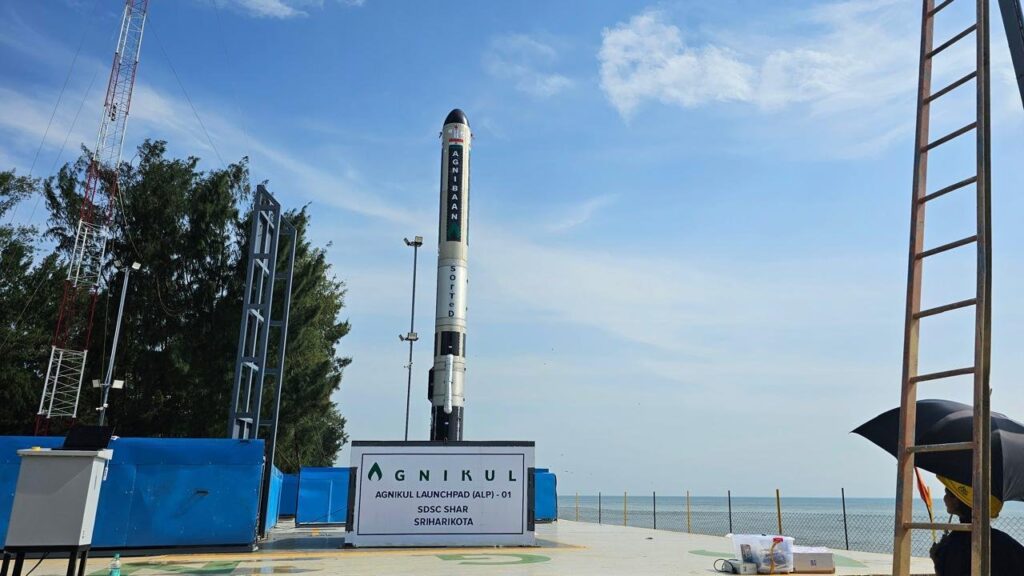On Thursday, Chennai-based Agnikul Cosmos Pvt Ltd made history in the space industry by successfully test-firing its 3D-printed rocket named Agnibaan SOrTeD (Suborbital Tech Demonstrator). The Indian Space Research Organisation (ISRO) confirmed the successful launch, which took place at 7:15 am from Sriharikota.
“Humbled to announce the successful completion of our first flight – Mission 01 of Agnibaan SOrTeD – from our own and India’s first & only private Launchpad within SDSC-SHAR at Sriharikota. All the mission objectives of this controlled vertical ascent flight were met and performance was nominal,” the startup wrote in a post on X.
Humbled to announce the successful completion of our first flight – Mission 01 of Agnibaan SOrTeD – from our own and India’s first & only private Launchpad within SDSC-SHAR at Sriharikota. All the mission objectives of this controlled vertical ascent flight were met and… pic.twitter.com/9icDOWjdVC
— AgniKul Cosmos (@AgnikulCosmos) May 30, 2024
The Agnibaan lifted off from a mobile launchpad named Dhanush, built by Agnikul itself. The suborbital flight, reaching an altitude of 8 kilometers before splashing into the Bay of Bengal, served as a crucial test for Agnikul’s upcoming orbital launch vehicles. The company’s goal is to provide regular launches for small satellites weighing between 30 kg and 300 kg.
This was Agnikul’s fifth attempt after facing technical setbacks on previous occasions. This mission marked a significant achievement for several reasons. Most notably, the Agnibaan was powered by the world’s first single-piece 3D-printed semi-cryogenic engine, a revolutionary technology designed and built entirely in-house by Agnikul. This engine has the potential to drastically reduce manufacturing time and cost compared to traditional methods.
Meanwhile, Agnikul’s success has been met with widespread praise. Prime Minister Narendra Modi lauded the achievement, calling it a testament to the ingenuity of India’s young talent and a momentous occasion for the nation’s space sector. The ISRO also congratulated Agnikul, terming it a major milestone and a testament to the potential of additive manufacturing in rocketry.
A remarkable feat which will make the entire nation proud!
The successful launch of Agnibaan rocket powered by world’s first single-piece 3D printed semi-cryogenic engine is a momentous occasion for India’s space sector and a testament to the remarkable ingenuity of our Yuva… https://t.co/iJFyy0dRqq pic.twitter.com/LlUAErHkO9
— Narendra Modi (@narendramodi) May 30, 2024
Congratulations @AgnikulCosmos for the successful launch of the Agnibaan SoRTed-01 mission from their launch pad.
A major milestone, as the first-ever controlled flight of a semi-cryogenic liquid engine realized through additive manufacturing.@INSPACeIND
— ISRO (@isro) May 30, 2024
Industry experts believe Agnikul’s 3D-printed engine is a game-changer. It has the potential to make space launches cheaper and more accessible, opening doors for a new era in satellite deployment, particularly for small satellite constellations gaining popularity globally.

